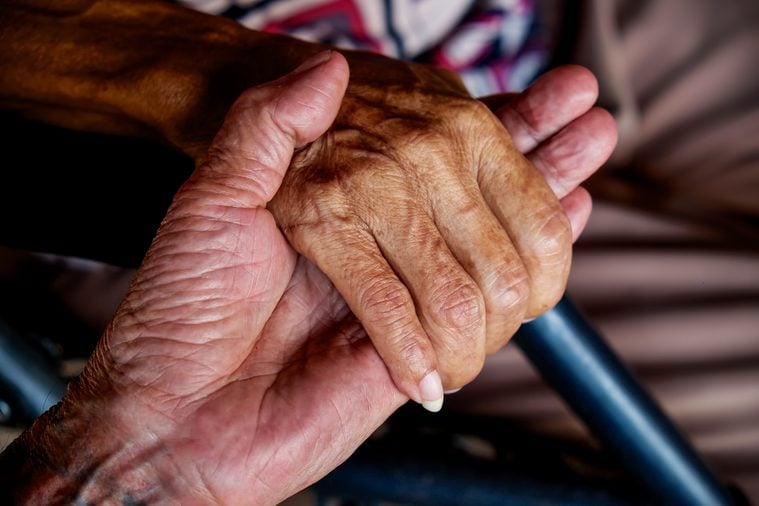This Is What “Dying of Old Age” Really Means
Updated: Apr. 09, 2021
Dying of old age isn't a technically correct term—but it could still play an important role in the grieving process.

“Dying of old age” isn’t an official medical term. Although doctors won’t use it in a clinical setting, it is a simple sweeping expression often explaining the death of elderly people.
That said, Nodar Janas, MD, a physician at Upper East Side Rehabilitation and Nursing Center in New York, says the saying is less popular in the medical community than it once was. “With advances in medicine and technology we can better and more accurately pinpoint causes of death in people, unlike many years ago when people died and doctors were unsure of the cause,” Dr. Janas says. Plus, research also shows that Americans are actually living longer. These are the habits your 80-year-old self will thank you for.
So when people say someone “died of old age,” Dr. Janas says they are likely referencing dying of natural causes. He notes, however, that there is always a medical reason for a cause of death—and there is no such thing as dying strictly because of old age. In the United States, Dr. Janas says the most common causes of death among the elderly are heart disease and cancer.
Implying that people die because of their age is misleading. As Alexis Halpern, MD, an emergency medicine physician at NewYork-Presbyterian/Weill Cornell Medical Center says, some 100-year-olds are very, very healthy. Here are other aging myths you should stop believing.
Dr. Halpern adds that this saying is more useful for friends and family members. She notes it is often used regarding people who pass away in their sleep. More importantly, saying someone “died of old age” could bring family members comfort. “It’s also a nice way to think about it … you don’t categorize someone as ill when you say that,” Dr. Halpern says. “It has a much more peaceful tone to it. Like, they lived a good life, and died of old age.”
Next, check out the signs your body is aging faster than you are.












